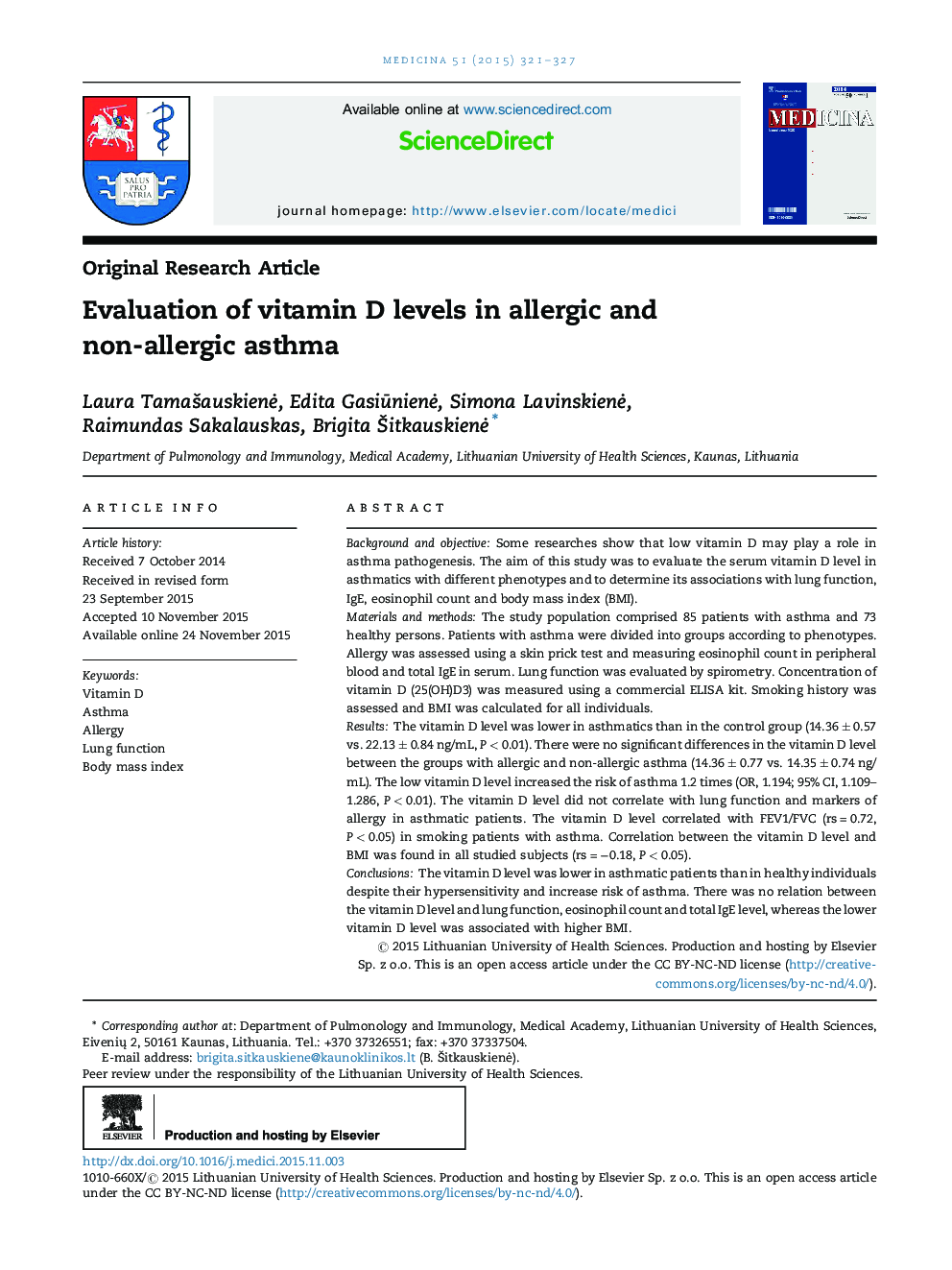| Article ID | Journal | Published Year | Pages | File Type |
|---|---|---|---|---|
| 2685099 | Medicina | 2015 | 7 Pages |
Background and objectiveSome researches show that low vitamin D may play a role in asthma pathogenesis. The aim of this study was to evaluate the serum vitamin D level in asthmatics with different phenotypes and to determine its associations with lung function, IgE, eosinophil count and body mass index (BMI).Materials and methodsThe study population comprised 85 patients with asthma and 73 healthy persons. Patients with asthma were divided into groups according to phenotypes. Allergy was assessed using a skin prick test and measuring eosinophil count in peripheral blood and total IgE in serum. Lung function was evaluated by spirometry. Concentration of vitamin D (25(OH)D3) was measured using a commercial ELISA kit. Smoking history was assessed and BMI was calculated for all individuals.ResultsThe vitamin D level was lower in asthmatics than in the control group (14.36 ± 0.57 vs. 22.13 ± 0.84 ng/mL, P < 0.01). There were no significant differences in the vitamin D level between the groups with allergic and non-allergic asthma (14.36 ± 0.77 vs. 14.35 ± 0.74 ng/mL). The low vitamin D level increased the risk of asthma 1.2 times (OR, 1.194; 95% CI, 1.109–1.286, P < 0.01). The vitamin D level did not correlate with lung function and markers of allergy in asthmatic patients. The vitamin D level correlated with FEV1/FVC (rs = 0.72, P < 0.05) in smoking patients with asthma. Correlation between the vitamin D level and BMI was found in all studied subjects (rs = −0.18, P < 0.05).ConclusionsThe vitamin D level was lower in asthmatic patients than in healthy individuals despite their hypersensitivity and increase risk of asthma. There was no relation between the vitamin D level and lung function, eosinophil count and total IgE level, whereas the lower vitamin D level was associated with higher BMI.
